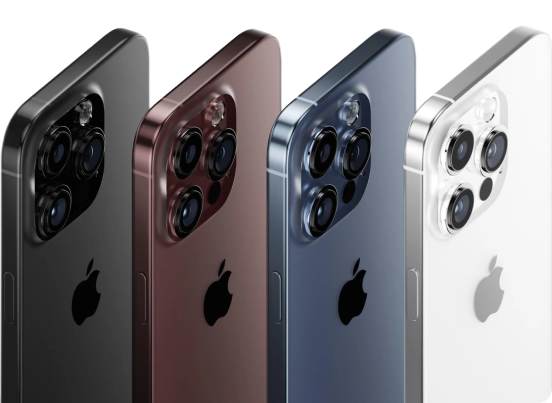Apple recently confirmed that it has no current plans to pursue the development of a smart ring, a decision that underscores a focused shift toward optimizing its Apple Watch lineup. This strategic choice, likely to fortify Apple’s position in the competitive wearable tech market, suggests a calculated move to refine its existing offerings while avoiding potential market cannibalization. In an industry that frequently sees rapid shifts in consumer preferences, Apple’s decision signals a strong commitment to delivering innovation within familiar and successful product lines.
Recent Developments in Wearable Tech
The wearables market has seen substantial advancements recently, with new products emerging and tech companies exploring various innovative avenues. The smart ring category, notably popularized by brands like Oura and Samsung’s Galaxy Ring, offers users health tracking features in a compact form. However, Apple’s decision to forego a smart ring suggests a level of skepticism about the category’s long-term appeal.
Apple’s cautious approach stands in contrast to its competitors who are rushing to fill the niche. This allows Apple to focus on its Apple Watch enhancements, which are already well-established in consumer preferences.
Key Competitor Products in Wearable Tech:
- Samsung Galaxy Ring: Health-focused smart ring with a sleek design
- Oura Ring: Known for detailed sleep tracking and heart rate monitoring
- Apple Watch: Comprehensive wearable with extensive health-tracking features
Apple’s Current Focus: Apple Watch Enhancements
With the Apple Watch SE and Series 10, Apple continues to dominate the wearables market, thanks to its innovative features and expanding health-tracking capabilities. Rather than entering the smart ring arena, Apple has chosen to double down on optimizing the Apple Watch. This approach aligns with its strategy to maintain a strong market presence while addressing diverse consumer needs.
Apple’s Current Focus Areas:
- Health Tracking: Incorporating advanced features such as ECG, blood oxygen monitoring, and FDA-cleared sleep apnea detection.
- Accessibility: Providing more affordable Apple Watch models like the SE.
- Market Dominance: Ensuring that the Apple Watch remains the go-to wearable.
By focusing on improving health features, Apple aims to retain its customer base while also attracting new users. Enhancing the Apple Watch’s functionality allows the company to cater to those seeking both premium and affordable devices.
Market Reactions to Apple’s Decision
The confirmation from Apple has spurred varied reactions within the tech community. Consumers interested in wearables are now exploring smart ring options from alternative brands, potentially signaling an opportunity for competitors. While some Apple fans express disappointment, others are satisfied that Apple is focusing on enhancing its current products.
The market’s response to this strategic pivot highlights Apple’s influence in the wearables space and suggests that consumer demand for innovative products remains strong. Samsung, Oura, and others are likely to capitalize on this by intensifying their marketing efforts around smart rings, thus ramping up the competition in the wearables segment.
Consumer Sentiments:
- Disappointment from those hoping for a smart ring.
- Satisfaction among users preferring the Apple Watch’s features.
- Curiosity about alternative options, including Samsung Galaxy Ring and Oura Ring.
Rumors and Speculation Explained
Before Apple’s confirmation, rumors swirled about a potential Apple smart ring, fueled by the growing popularity of such devices. Industry analysts speculated that a smart ring might be Apple’s next big foray into health-focused tech, following in the footsteps of its competitors. However, Apple’s decision to prioritize the Apple Watch over a smart ring aligns with its cautious approach to innovation.
Speculation around Apple’s product line has always been rife, but the clarification on the smart ring highlights a strategic emphasis on established product categories. Apple’s decision reflects its consideration of potential sales overlap with the Apple Watch, ultimately favoring refinement over diversification.
Why Apple Passed on the Smart Ring:
- Potential for sales cannibalization of the Apple Watch.
- Uncertain consumer demand in a relatively niche market.
- Preference to focus on the proven success of the Apple Watch.
Insights from Industry Experts
Analysts largely agree that Apple’s decision to concentrate on the Apple Watch is a calculated move that reflects an understanding of market dynamics. Mark Gurman and other industry experts suggest that Apple’s decision is likely influenced by a preference for reinforcing its brand presence in established markets. While the smart ring market is growing, it remains a niche category with uncertain demand, making it a risky investment.
Factors Contributing to Apple’s Decision:
- Sales Cannibalization: A smart ring might impact Apple Watch sales negatively.
- Uncertain Market: Smart rings are relatively new, with consumer demand not fully established.
- Focus on Innovation: Apple may favor enhancing existing products over entering niche markets.
Comparing Apple Watch to Smart Rings
When comparing the Apple Watch to emerging smart rings, several key differences become apparent. While smart rings offer portability and potentially longer battery life, the Apple Watch excels in functionality, offering a broad range of features and a robust app ecosystem that smart rings currently cannot match.
Key Differences Between Apple Watch and Smart Rings:
- Feature Set: Apple Watch offers comprehensive health tracking, notifications, and app integrations, whereas smart rings primarily focus on health metrics.
- App Ecosystem: The Apple Watch supports a wide variety of apps, while smart rings typically have limited integrations.
- Market Positioning: Apple Watch serves as a flagship wearable, while smart rings are seen as secondary devices.
The Future of Apple’s Wearable Technology
Looking forward, Apple’s strategic focus on the Apple Watch could signal new advancements in health tracking and integration. The company is expected to continue enhancing the Watch’s capabilities, potentially exploring new accessories or complementary devices to keep up with evolving consumer trends. Rumors surrounding potential augmented reality accessories, such as Apple Glasses, suggest that Apple is still actively pursuing innovation within the wearable space.
By concentrating on the Apple Watch, Apple solidifies its commitment to maintaining leadership in wearable technology. This focus will likely drive continued enhancements in health and fitness features, ensuring the Apple Watch remains a top choice for users seeking reliable and cutting-edge technology.
MacReview Verdict
Ultimately, Apple’s decision to forgo a smart ring underscores its strategic focus on the Apple Watch, a product that has consistently performed well. By choosing to refine rather than diversify, Apple can continue to dominate the wearables market while providing incremental advancements that meet consumer needs. As wearables evolve, Apple’s approach may serve as a model for balancing innovation with established product success, setting the stage for exciting developments in the future of personal technology.




